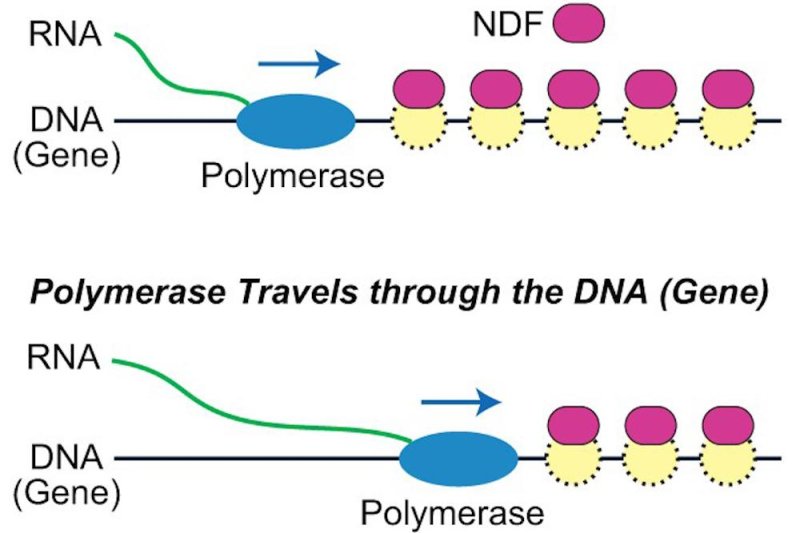After a protein called NDF destabilizes the nucleosomes, the polymerase is able to make copies of DNA and activate genes. Photo by UCSD
May 15 (UPI) -- Until now, scientists weren't sure how gene activation mechanisms avoided nucleosomes, the bodyguards tasked with keeping DNA turned off.
Researchers at the University of California, San Diego, however, have pinpointed a key factor responsible for unraveling nucleosome structures and allowing genes to be activated.
Geneticists described the newly identified nucleosome destabilizing factor, or NDF, this week in the journal Genes and Development.
DNA consists of a long molecular chain of nucleotides and acts as the genetic instructions for the development, growth and replication of life. But DNA doesn't actuate life -- it must be interpreted and expressed.
RNA expresses or translates DNA, making copies of the DNA sequences. These RNA copies are the genes that trigger the production of proteins and jumpstart biological processes.
But until now, scientists had failed to explain how the copy-maker, RNA polymerase, bypassed nucleosomes, protective beads found on the DNA chain.
In lab experiments, researchers showed NDF was essential to gene activation. The protein works to disarm nucleosomes and allows polymerase access to the DNA chain.
Scientists believe some diseases can be explained by defects in the gene expression process. An. abundance of NDF could cause certain genes to be incorrectly expressed, triggering health problems.
"NDF is present at abnormally high levels in breast cancer cells, and the overproduction of NDF might be partly responsible for the uncontrolled growth of these cells," James Kadonaga, a professor of molecular biology at UCSD, said in a news release. "Thus, the identification of NDF resolves an old mystery and reveals a new factor that may have an important role in many aspects of human biology."















